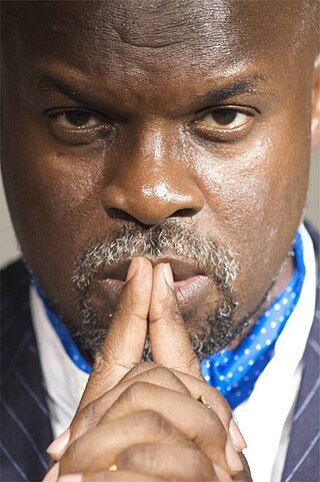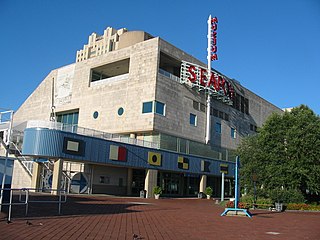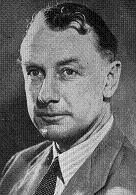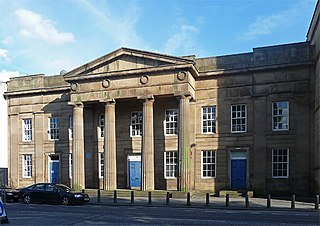
Frantz Omar Fanon was a Francophone Afro-Caribbean psychiatrist, political philosopher, and Marxist from the French colony of Martinique. His works have become influential in the fields of post-colonial studies, critical theory, and Marxism. As well as being an intellectual, Fanon was a political radical, Pan-Africanist, and Marxist humanist concerned with the psychopathology of colonization and the human, social, and cultural consequences of decolonization.
Separatism is the advocacy of cultural, ethnic, tribal, religious, racial, governmental, or gender separation from the larger group. As with secession, separatism conventionally refers to full political separation. Groups simply seeking greater autonomy are not separatist as such. Some discourse settings equate separatism with religious segregation, racial segregation, or sex segregation, while other discourse settings take the broader view that separation by choice may serve useful purposes and is not the same as government-enforced segregation. There is some academic debate about this definition, and in particular how it relates to secessionism, as has been discussed online.
Decolonization or decolonisation is the undoing of colonialism, the latter being the process whereby imperial nations establish and dominate foreign territories, often overseas. The meanings and applications of the term are disputed. Some scholars of decolonization focus especially on independence movements in the colonies and the collapse of global colonial empires. Other scholars extend the meaning to include economic, cultural and psychological aspects of the colonial experience.

Wars of national liberation, also called wars of independence, are conflicts fought by nations to gain independence. The term is used in conjunction with wars against foreign powers to establish separate sovereign states for the rebelling nationality. From a different point of view, such wars are called insurgencies, rebellions. Guerrilla warfare or asymmetric warfare is often utilized by groups labeled as national liberation movements, often with support from other states.

Jean-François Thiriart, often known as Jean Thiriart, was a Belgian far-right political theorist.

The decolonisation of Africa is a process that largely took place from mid-1950s to 1975 during the Cold War, with radical government changes on the continent as colonial governments made the transition to independent states. The process was often marred with violence, political turmoil, widespread unrest, and organised revolts in both northern and sub-Saharan countries including the Mau Mau rebellion in British Kenya, the Algerian War in French Algeria, the Congo Crisis in the Belgian Congo, the Angolan War of Independence in Portuguese Angola, the Zanzibar Revolution in the Sultanate of Zanzibar, and the Nigerian Civil War in the secessionist state of Biafra.
Native American studies is an interdisciplinary academic field that examines the history, culture, politics, issues, spirituality, sociology and contemporary experience of Native peoples in North America, or, taking a hemispheric approach, the Americas. Increasingly, debate has focused on the differences rather than the similarities between other Ethnic studies disciplines such as African American studies, Asian American Studies, and Latino/a Studies.

The Settlement Plan was an agreement between the ethnically Saharawi Polisario Front and Morocco on the organization of a referendum, which would constitute an expression of self-determination for the people of Western Sahara, leading either to full independence, or integration with the Kingdom of Morocco. It resulted in a cease-fire which remains effective to this day, and the establishment of the MINURSO peace force to oversee it and to organize the referendum. The referendum never occurred.

Gwendolyn Audrey Foster is an experimental filmmaker, artist and author. She is Willa Cather Professor Emerita in Film Studies. Her work has focused on gender, race, ecofeminism, queer sexuality, eco-theory, and class studies. From 1999 through the end of 2014, she was co-editor along with Wheeler Winston Dixon of the Quarterly Review of Film and Video. In 2016, she was named Willa Cather Endowed Professor of English at the University of Nebraska at Lincoln and took early retirement in 2020.

Social movement theory is an interdisciplinary study within the social sciences that generally seeks to explain why social mobilization occurs, the forms under which it manifests, as well as potential social, cultural, political, and economic consequences, such as the creation and functioning of social movements.

Tukufu Zuberi is an American sociologist, filmmaker, social critic, educator, and writer. Zuberi has appeared in several documentaries on Africa and the African diaspora, including Liberia: America's Stepchild (2002), and 500 Years Later (2005). He is one of the hosts of the long-running PBS program History Detectives. As founder of his own production company, he produced the film African Independence, which premiered at the San Diego Black Film Festival in January 2013. He is the Lasry Family Professor of Race Relations, professor and chair of the sociology department, and professor of Africana studies at the University of Pennsylvania.

The Independence Seaport Museum was founded in 1961 and is located in the Penn's Landing complex along the Delaware River in Philadelphia, Pennsylvania. The collections at the Independence Seaport Museum document maritime history and culture along the Delaware River. At the museum are two National Historic Landmark ships and the J. Welles Henderson Archives and Library.

Joe Richard Feagin is an American sociologist and social theorist who has conducted extensive research on racial and gender issues in the United States. He is currently the Ella C. McFadden Distinguished Professor at Texas A&M University. Feagin has previously taught at the University of Massachusetts, Boston, University of California, Riverside, University of Texas at Austin, and the University of Florida.
Post-colonial anarchism is a term used to describe anarchism in an anti-imperialist framework. Whereas traditional anarchism arose from industrialized Western nations—and thus sees history from their perspective—post-colonial anarchism approaches the same principles of anarchism from the perspective of colonized peoples. It is highly critical of the contributions of the established anarchist movement, and seeks to add what it sees as a unique and important perspective. The tendency is strongly influenced by indigenism, anti-state forms of nationalism, and anarchism among ethnic minorities, among other sources.

Sir Robert Perceval Armitage was a British colonial administrator who held senior positions in Kenya and the Gold Coast, and was Governor of Cyprus and then of Nyasaland during the period of decolonisation.

The "Wind of Change" speech was an address made by British Prime Minister Harold Macmillan to the Parliament of South Africa on 3 February 1960 in Cape Town. He had spent a month in Africa in visiting a number of British colonies. When the Labour Party was in government from 1945 to 1951, it had started a process of decolonisation, but the policy had been halted or at least slowed down by the Conservative governments since 1951. Macmillan's speech signalled that the Conservative Party, which formed the British government, would no longer impede independence for many of those territories.
Ronald H. Chilcote is a political economist from the United States. He is currently the Edward A. Dickson Emeritus Professor of Economics and Political Science at the University of California, Riverside, and has served as managing editor of the academic journal Latin American Perspectives since its founding in 1974. Chilcote's main area of research is on Brazil, Portugal and the former Portuguese colonies in Africa, as well as comparative politics, political economy and development theory.
Dr. Faye Venetia Harrison is an American anthropologist. Her research interests include political economy, power, diaspora, human rights, and the intersections of race, gender, and class. She is currently Professor of African American Studies and Anthropology at the University of Illinois at Urbana-Champaign. She formerly served as Joint Professor of Anthropology and African American Studies at the University of Florida. Harrison received her BA in Anthropology in 1974 from Brown University, and her MA and PhD in Anthropology from Stanford University in 1977 and 1982, respectively. She has conducted research in the US, UK, and Jamaica. Her scholarly interests have also taken her to Cuba, South Africa, and Japan.

The postcolonial history of Africa spans the postcolonial, neocolonial, and contemporary period in the history of Africa. The decolonization of Africa started with Libya in 1951, although Liberia, South Africa, Egypt and Ethiopia were already independent. Many countries followed in the 1950s and 1960s, with a peak in 1960 with the Year of Africa, which saw 17 African nations declare independence, including a large part of French West Africa. Most of the remaining countries gained independence throughout the 1960s, although some colonizers were reluctant to relinquish sovereignty, resulting in bitter wars of independence which lasted for a decade or more. The last African countries to gain formal independence were Guinea-Bissau (1974), Mozambique (1975) and Angola (1975) from Portugal; Djibouti from France in 1977; Zimbabwe from the United Kingdom in 1980; and Namibia from South Africa in 1990. Eritrea later split off from Ethiopia in 1993.

Chorlton-on-Medlock Town Hall is a former municipal building in Cavendish Street in Chorlton-on-Medlock, Manchester, England. The structure, of which only the façade is original, is a Grade II listed building.













